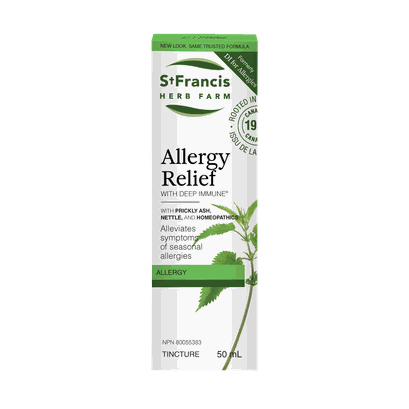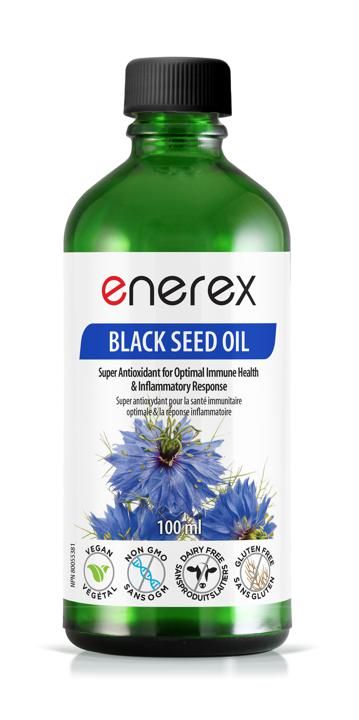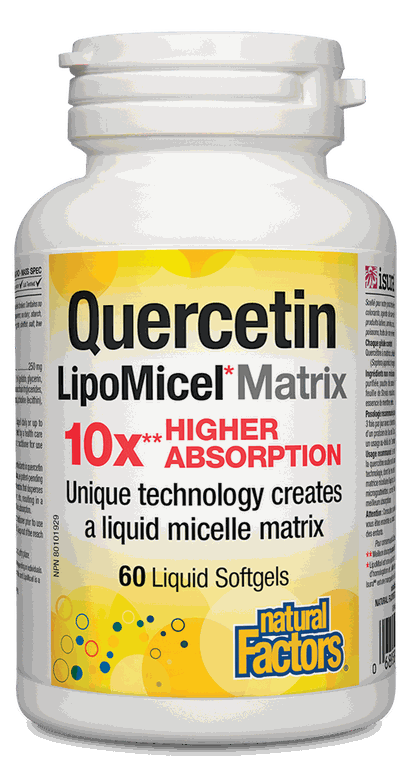Allergies are the seasons saying hello but for some of us those seasonal changes often come with a whole gamut of unwanted symptoms such as sneezing, runny noses, and watery & itchy eyes. Luckily there are natural remedies for all of the allergy sufferers out there. Below are a few of our "go to's"!
Quercetin
Quercetin is a plant-based flavonoid that has anti-inflammatory and anti-viral properties. It can be found in plant-based foods like apples, broccoli, onions and tomatoes. Quercetin is also in herbs like ginkgo biloba, St John’s wort, and elderberries. This powerful antioxidant has plenty of benefits including supporting the immune system and providing allergy relief. By lessening the histamine response, unwanted symptoms of hay fever, watery eyes, runny noses, or hives can be reduce or eliminated. Some studies even show that it can be equivalent to prescription medications when it comes to fighting allergies (1).
It’s been shown that Quercetin is better absorbed when it’s not attached to sugars and when consumed with a quality fat and fibre. That means those pungent foods like onions and shallots may have a higher absorption rate than berries and fruit. So while you can get sufficient amounts from eating a healthy diet, if you have allergies or you need an extra boost through allergy season, taking it as a supplement might be a good option for you.
Black Seed Oil
This oil has over 100 active chemical compounds, but the constituents that have been studied the most are crystalline nigellone, thymoquinone, and beta sitosterol. According to some history studies, black seed oil was used by Egyptian pharaohs and is widely prized throughout the middle east in Ayurvedic medicine. In today's world this natural oil continues to have numerous benefits for allergy sufferers. One study showed a significant improvement in seasonal allergy sufferers, where some even became symptom free (2).
Stinging Nettle
Also know as Nettle, this powerful herb was also dates back to Ancient Egyptian times. Stinging Nettle has a variety of nutrients such as Vitamin C, minerals, amino acids, and polyphenols. While traditionally used in arthritic and anti-inflammatory preparations, Nettle is also used to help reduce hay fever symptoms. It does this by blocking histamine receptors and preventing immune cells from triggering allergy symptoms (3).
Schisandra
This ancient berry grows wild throughout Asia and Russia and according to Chinese medicine, it is beneficial for several body meridians including the heart, lungs, and kidneys. In one study, schisandra berries have been shown to possess anti-allergic and anti-asthma effects (4). While more studies need to be performed, there are a lot of potential benefits for Shisandra berries and its support for asthma.
Histaminum Hydrochloricum
Histaminum hydrochloricum is a versatile homeopathic remedy that works for a wide range of conditions such as allergies, asthma, bronchitis, and muscle and joint pain. By using a microdose, it can help your body regulate how much natural histamine it makes rather than blocking it completely. This is a great option for those people who might be more sensitive to concentrated herbs, not wanting the drowsy side effects of over the counter antihistamines, or simply looking for extra allergy support.
A great product that contains a blend of herbs and homeopathic remedies is St. Francis Allergy Relief with deep immune (see below).
While herbs, isolated natural constituents, and homeopathic remedies typically have less side effects than pharmaceutical products, it is important to speak with a practitioner before starting any natural allergy relief products and to read the product instructions carefully.
(1) Jafarinia M., Hosseini M.S., Kasiri N., Fazel N., Fathi F., Hakemi M.G., Eskandari N. (May 2020). Quercetin with the potential effec on allergic diseases. Allergy, asthma, and clinical immunology;16:36
(2) https://pubmed.ncbi.nlm.nih.gov/23855426/
(3) https://pubmed.ncbi.nlm.nih.gov/19140159/
(4) https://www.sciencedirect.com/science/article/abs/pii/S0378874115300647





